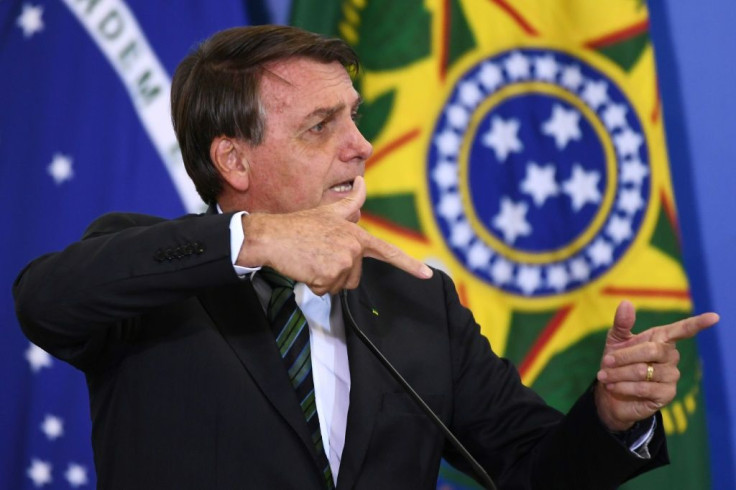Shares In Brazil's Petrobras Plunge 20%
Shares in Brazil's state-run oil company, Petrobras, plummeted Monday after President Jair Bolsonaro changed the firm's chief executive, fueling fears he will intervene in energy prices and the economy in general as he eyes re-election.
The company's ordinary shares dived 20.5 percent and preferential shares 21.5 percent on the Sao Paulo stock exchange, which closed down 4.9 percent overall.
Bolsonaro on Friday appointed army reserve general Joaquim Silva e Luna as president of Petrobras, shortly after saying the firm should not be constantly "surprising people" with price increases.
Under ousted CEO Roberto Castello Branco, Petrobras had increased fuel prices four times so far in 2021, a cumulative rise of nearly 35 percent.
The increases came as international oil prices, which hit all-time lows last year, returned to pre-coronavirus pandemic levels, pushed higher by output cuts in oil-producing countries and optimism that vaccines against Covid-19 will spur a global economic recovery.
But the price hikes have triggered backlash in Brazil, notably among truck drivers, who vowed a crippling strike.
Brazil, Latin America's biggest economy, is a top 10 oil producer, with output of 3.67 million barrels per day in 2019.
The shake-up at Petrobras appears to widen a growing rift between Bolsonaro and the business sector, which helped him win election in 2018.
As a candidate, Bolsonaro wooed the business vote with his choice of ultra-liberal Economy Minister Paulo Guedes and the promise of investor-friendly reforms.
But as the far-right president gears up his bid to win re-election in 2022, he looks increasingly inclined to ditch tight-belt, small-government policies for populist economics.
"Is Brazil's oil ours, or does it belong to a small group of people?" he rhetorically asked supporters outside the presidential palace in Brasilia Monday.
He also criticized Castello Branco for working from home because of the pandemic.

"He's been at home for 11 months without working. He's working remotely. This is a time when the boss needs to be at the front," said the president, an outspoken critic of social distancing policies against Covid-19.
It was Bolsonaro's latest move to take power from technocrats and hand it to the military, which holds huge sway in his administration: nine of his 23 ministers are current or former officers, plus his vice president.
Bolsonaro added that "no one is going to interfere in Petrobras's pricing policy."
But analysts and markets did not seem convinced.
"The government has clearly shown interference in Petrobras. Bolsonaro is openly against the system of floating fuel prices," said economist Alex Agostini of credit rating firm Austin Rating.
"It's a clear signal he's going to intervene on prices. And we know when that's been done in the past under (former president) Dilma Rousseff, it led to very big losses for Petrobras," he told AFP.
Petrobras, Brazil's biggest company, is only just emerging from twin crises during the Rousseff years (2011-2016), one driven by financial woes, the other by a massive corruption scandal.
The company has been selling off assets and slashing spending to put its books in order since revelations of its role in a huge bribe-paying scheme exploded in 2014.
Now with the latest stock-market carnage, Petrobras has lost 100.6 billion reais ($18.4 billion) in market value since Thursday.
The Brazilian real meanwhile fell 1.26 percent against the dollar.
Shares in state electricity company Eletrobras initially shed eight percent before recovering, amid fears Bolsonaro would also target rising electricity prices.
The president said Saturday he was looking at "putting a finger" on electricity costs, as well, amid ongoing discussions on privatizing Eletrobras.





















